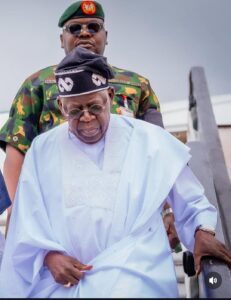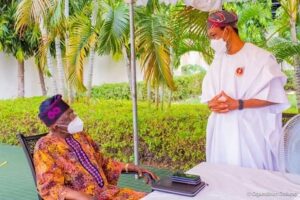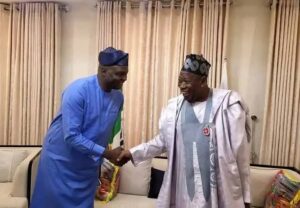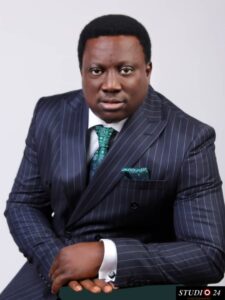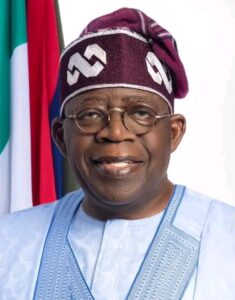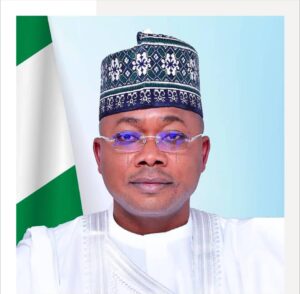MAY 29: A Common Sense Opinion By Abraham Maina Joda

I am not a legal practitioner but my opinions are based on those of several legal experts, the constitution and past events.
THE POSITION OF THE LAW
SECTION 285(5)
Legal Regime on Time Limitations in Election Petitions
Section 285(5) of the Constitution stipulates that every election petition shall be filed within 21 days after the date of the declaration of result of the election. By subsection (6) of S. 285, the tribunal is bound to deliver its judgment in writing within 180 days from the date of filing of the petition, while by subsection (7) of same section, an appeal arising therefrom shall be concluded within 60 days of the delivery of the judgment of the tribunal or court of appeal. Similar provisions on time limit for pre-election cases are enshrined under S. 285(8), (11), (12), (14) of the 1999 Constitution as amended by the 4th Alteration Act, 2017.
This section of the constitution clearly backs the continuation of the election petitions and cases without stopping the inauguration of the winner.
The constitution stipulates that the Presidential elections petition starts at the appeal court and ends at the supreme court and it should be within 180 days while that of the Governorship elections goes from the tribunal (180 days), Appeal court (60 days) and Supreme court (60 days).
The election petitions of PDP and LP and other parties were submitted on 22 March 2023 or thereabouts, and by May 29 it will be 68-69 days; so it is my contention that it will be constitutionally right for the winner to be sworn in until the case against him is decided otherwise. Anything short of that is, in my opinion, a breach of the constitution and will only lead to a vacuum and crisis.
CALLS FOR INTERIM GOVERNMENT, MILITARY TAKE OVER & GOVERNMENT OF NATIONAL UNITY
These are some of the arguments brought forward by some commentators on the outcome of the elections, but in my opinion all this have no place in the constitution and therefore are no options. We run a constitutional democracy and it is absolute in it’s powers except if it is amended. It is bordering on treason to even suggest such unconstitutional contraptions. Some are of the school of thought that it has been done in the past by General Ibrahim Badamosi Babangida after the June 12 elections. I think it is sheer hypocrisy for anyone to wish that rape of the will of the people on us again. IBB being a military dictator who was not guided by the constitution can commit such constitutional atrocity, but it will be political suicide for the present democracy and rule of law to be thwarted by such unscrupulous suggestions.
PAST OCCURRENCES AND WHAT WAS DONE.
I will concentrate on the cases of some of the major characters in the February 25 presidential election and use the past position the law took on their cases.
- OBJ AND ATIKU
The election of Chief Olusegun Obasanjo (OBJ) of the PDP in 2003 was disputed by General Mohammed Buhari of the ANPP. The petition proceeded from the appeal court to the supreme court, and the case was concluded in 2005. Meanwhile, OBJ and Atiku were sworn in on May 29, 2003. - PETER OBI.
Peter Obi of All Progressives Grand Alliance, APGA, won the Anambra State Governorship Election in February 10, 2010. Dr. Chris Ngige of the Action Congress, AC, and Dr. Christian Okoli of the United Nigeria Democratic Party, UNDP, challenged the result of the election but Peter Obi was sworn in as governor despite the pending court cases against his victory before his election was later upheld. - DATTI BABA-AHMED
Yusuf Datti Baba-Ahmed contested and was declared winner in the Kaduna North Senatorial Elections of 2011 as candidate of the Congress for Progressive Change (CPC) which was then led by President Muhammadu Buhari. The election was challenged at the court by the candidate of the Peoples Democratic Party (PDP), Ahmed Makarfi, which led to Datti Baba-Ahmed’s controversial victory being upturned. Yet, he was in the Senate for one year while the case was ongoing until he was removed by the court about a year later.
All cases listed above involved the same people allegedly championing the agitation today that the President-Elect, Asiwaju Bola Ahmed Tinubu, should not be sworn in on May 29, 2023 while having all enjoyed the same constitutional provisions in the past.
WAY OUT
The way out of the disputations over the outcome of the last presidential election and by extension other elections is comprehensive amendment of the constitution and electoral law. This, however, can only be done by the legislature and not by protests on the streets, letter writing to international community or press interviews.
We have the Justice Mohammed Uwais report that can be adopted and reviewed to meet the present realities of electronic elections. This will allow for elections petitions to be decided within a time frame that will not affect the swearing in of the winner.
Thankfullly, the president-elect, after leaving office as governor of Lagos state in 2007, was one of the champions of the implementation of electoral law reforms and was one of those who supported the adoption and implementation of the Justice Mohammed Uwais report. He should be called upon to be one of the protagonist of this electoral reforms when he is sworn in as president.
I will also call on political parties,social commentators, civil rights movement and organized labour to begin to champion this reforms in the 10th assembly and should ensure that this issue is kept on the front burner of national discuss in the coming years.
Thee are my layman views. I come in peace.
Abraham Maina Joda, a political analyst, wrote from Lagos.

